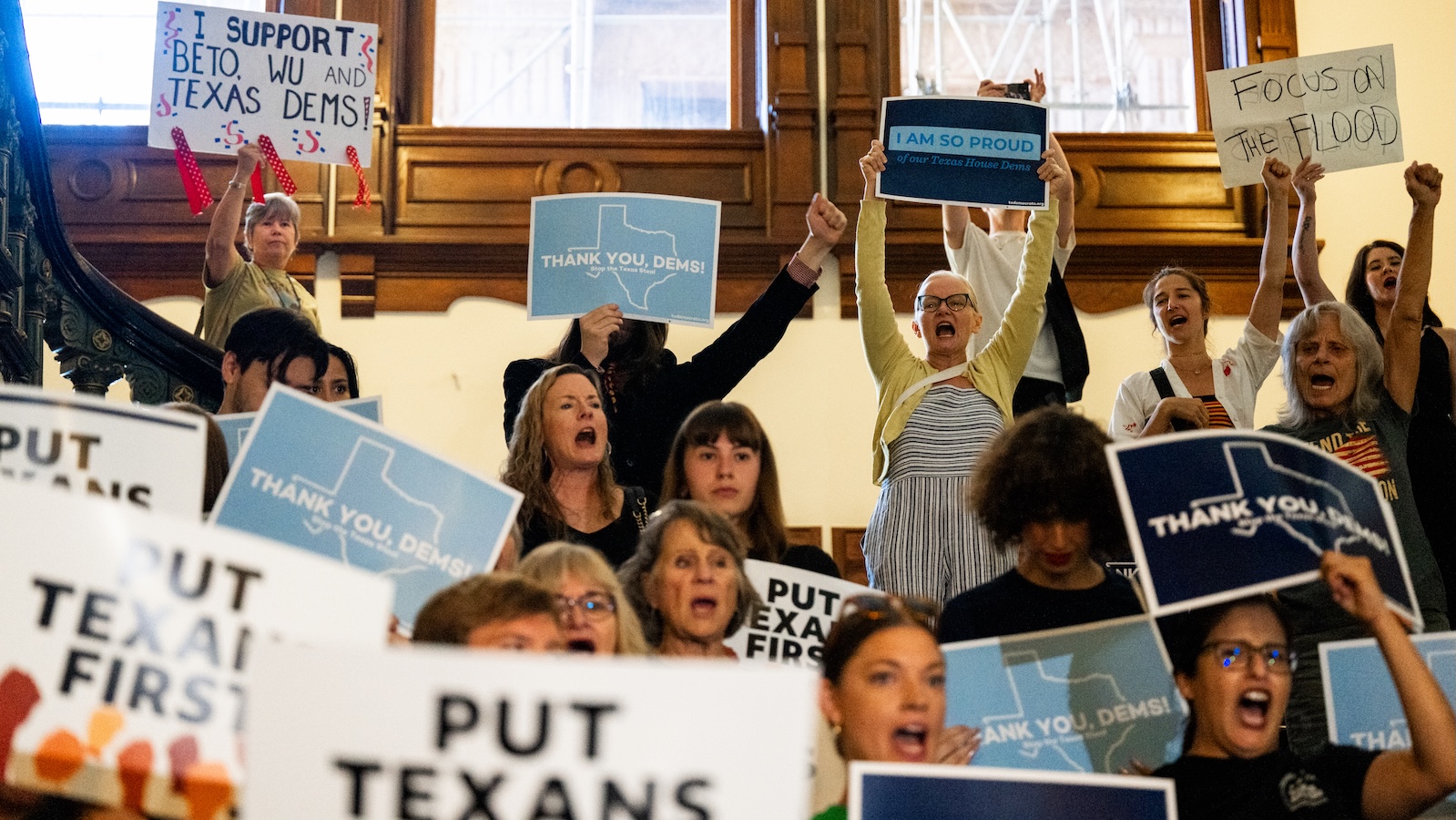Politics
Texas Flood Relief Stalls Amid Political Redistricting Battle

In early July, flash floods along the Guadalupe River resulted in the tragic loss of 138 lives and inflicted an estimated $1.1 billion in damages, marking one of the deadliest natural disasters in Texas history. Just days after this catastrophe, the state found itself embroiled in a contentious political struggle over congressional district lines, diverting attention from urgent flood recovery efforts.
Following the floods, President Donald Trump pressured Texas lawmakers to redraw congressional maps to create five additional seats for Republicans. As floodwaters receded, Governor Greg Abbott convened a special legislative session starting on July 21, instructing lawmakers to address 18 agenda items, four of which pertained directly to flood preparedness.
During this initial session, lawmakers proposed various bills aimed at improving flood response and infrastructure. These included stricter building codes for youth camps located in flood-prone areas, enhanced emergency communication strategies, and the establishment of new relief funds. However, the session quickly deteriorated as partisan disputes over redistricting overshadowed discussions about protecting Texans from future flooding.
Throughout the following week, tensions escalated when Democratic lawmakers exited the state to prevent a quorum necessary for legislative action. This political maneuvering effectively stalled the proposed flood relief measures, resulting in a deadlock that extended until the session concluded on August 15, with Democrats still absent and essential flood legislation left unaddressed. Both parties accused each other of obstructing disaster relief efforts.
In response to this impasse, Abbott called for a second special session, during which lawmakers returned and successfully passed a more focused flood relief package through the Texas Senate. This package includes a proposal to allocate $294 million towards flood preparedness and recovery initiatives. Key components of the package aim to match federal aid from FEMA, install outdoor warning sirens in at-risk communities, enhance rainfall forecasting capabilities, and develop a swift-water training facility for first responders.
Additional legislation mandates that youth camps in flood-prone areas establish evacuation plans and take necessary precautions during flash flood alerts. Despite these advancements, disaster recovery experts have criticized the measures as being too narrowly focused on the recent floods.
Julia Orduña, the Southeast Texas regional director at Texas Housers, emphasized that the legislative approach lacks a comprehensive strategy. She stated, “They’re trying to stick a band-aid on the issue and say they did something.” Orduña argued that the legislature’s emphasis on immediate relief has prevented meaningful discussions about the long-term implications of building in areas susceptible to flooding.
At a press conference, flood survivors urged Abbott to expedite the release of emergency relief funds. Kylie Nidever, a resident of Hunt, one of the towns hardest hit by the floods, highlighted the ongoing challenges faced by affected communities. “Today marks 43 days since the flood,” she said, “Forty-three days without emergency aid from the state.”
Following the disaster proclamation issued by Abbott, he holds the authority to redirect state funds for various recovery efforts, including debris removal and mental health support. Historically, he has utilized this power for Hurricane Harvey recovery efforts and border wall funding.
State Representative Armando Walle, a Democrat from Houston, criticized the intertwining of emergency relief with political maneuvering over redistricting. “We need to be able to decouple these emergency funds from the political theater,” he asserted.
As redistricting discussions continue, flood relief measures remain precariously balanced, with victims caught in the crossfire of political gamesmanship. Nidever expressed a sentiment shared by many: “We are not asking for handouts. We’re asking for a government that works.”
-

 Lifestyle4 months ago
Lifestyle4 months agoLibraries Challenge Rising E-Book Costs Amid Growing Demand
-

 Sports3 months ago
Sports3 months agoTyreek Hill Responds to Tua Tagovailoa’s Comments on Team Dynamics
-

 Sports3 months ago
Sports3 months agoLiverpool Secures Agreement to Sign Young Striker Will Wright
-

 Lifestyle3 months ago
Lifestyle3 months agoSave Your Split Tomatoes: Expert Tips for Gardeners
-

 Lifestyle3 months ago
Lifestyle3 months agoPrincess Beatrice’s Daughter Athena Joins Siblings at London Parade
-

 World3 months ago
World3 months agoWinter Storms Lash New South Wales with Snow, Flood Risks
-

 Science4 months ago
Science4 months agoTrump Administration Moves to Repeal Key Climate Regulation
-

 Science3 months ago
Science3 months agoSan Francisco Hosts Unique Contest to Identify “Performative Males”
-

 Business4 months ago
Business4 months agoSoFi Technologies Shares Slip 2% Following Insider Stock Sale
-

 Science4 months ago
Science4 months agoNew Tool Reveals Link Between Horse Coat Condition and Parasites
-

 Sports3 months ago
Sports3 months agoElon Musk Sculpture Travels From Utah to Yosemite National Park
-

 Science4 months ago
Science4 months agoNew Study Confirms Humans Transported Stonehenge Bluestones








